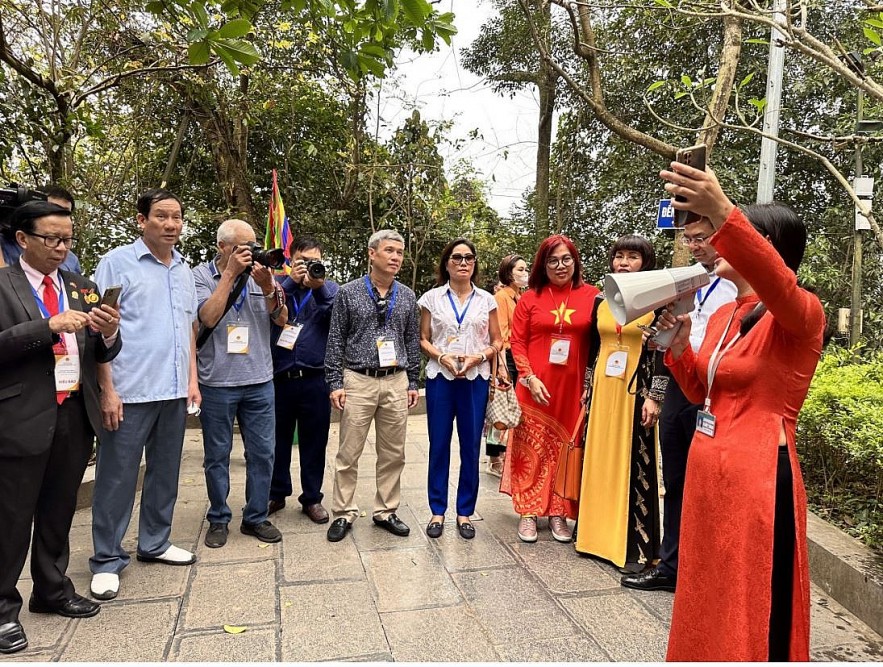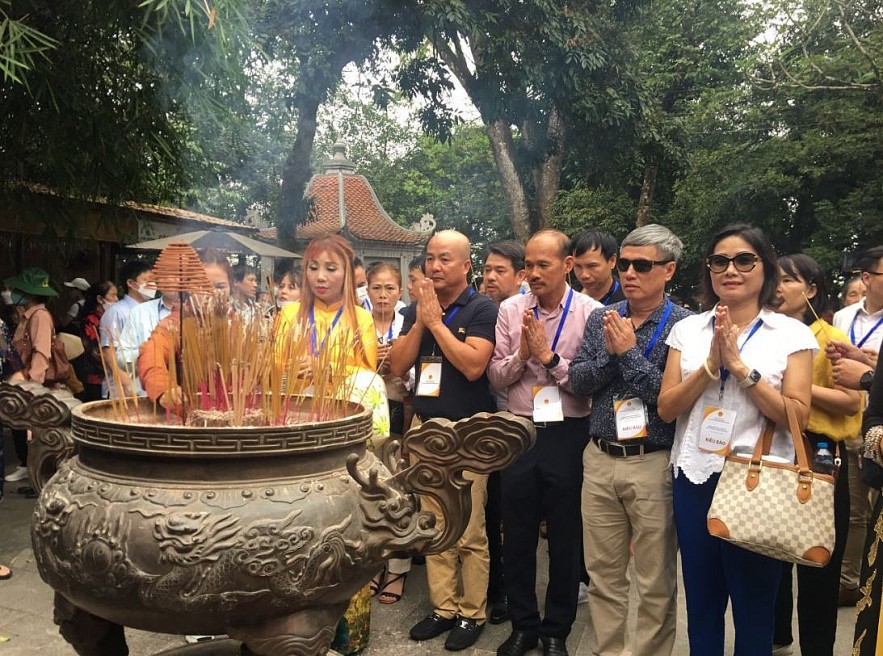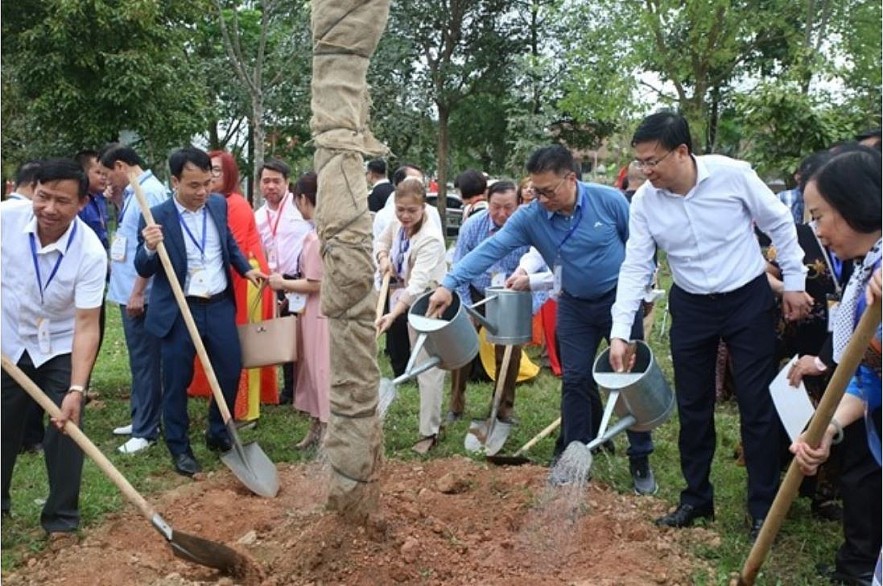 |
| OVs visit the Hung Kings Temple relic site. Photo: Pham Ly |
They paid homage to the Hung Kings by offering incense at their temples on April 25th and planted trees at the Den Gieng (Gieng Temple).
They fervently prayed for Vietnam to achieve even greater prosperity, a higher standing in the international community, and solidarity amongst the Vietnamese diaspora.
 |
| The OVs offer incense to the Hung Kings. Photo: Pham Ly |
Hieu noted that the annual incense-offering program, which is jointly organized by the COVA and the Ministry of Foreign Affairs in collaboration with the provincial People’s Committee, has been met with a warm reception from overseas Vietnamese.
It is intended to bolster the pride of national traditions, pay homage to the nation, and fortify the robust national unity bloc.
On April 25th, the delegation convened with representatives of the provincial People’s Committee, taking time to honor the legendary ancestors of Vietnam – Father Lac Long Quan and Mother Au Co.
 |
| The OVs plant trees at the Den Gieng (Gieng Temple). Photo: Pham Ly |
Legend has it that Lac Long Quan (real name Sung Lam, the son of Kinh Duong Vuong and Than Long Nu) married Au Co, the fairy daughter of De Lai. Au Co then went on to give birth to a hundred eggs, all of which hatched into a hundred sons. Unfortunately, not long after, Lac Long Quan and Au Co parted ways. Lac Long Quan journeyed to the coast with fifty of the children, while Au Co stayed in the highlands with the other fifty.
Their eldest son was crowned king, and he named the nation Van Lang, establishing its capital in Phong Chau (modern-day Viet Tri in Phu Tho province), thus commencing the eighteen reigns of the Hung Kings.
The kings selected Nghia Linh Mountain, the highest in the region, to conduct rituals dedicated to the deities of rice and the sun in order to plead for abundant harvests.
To pay tribute to their monumental achievements, a complex of temples was erected on Nghia Linh Mountain to honor them, and the 10th day of the third lunar month is now celebrated as the national day of remembrance for the two kings.
The veneration of the Hung Kings, deeply rooted in the ancestral cults of the majority of Vietnamese families, was officially declared a part of Humanity’s Intangible Cultural Heritage by UNESCO in 2012.



